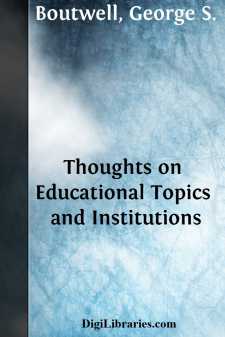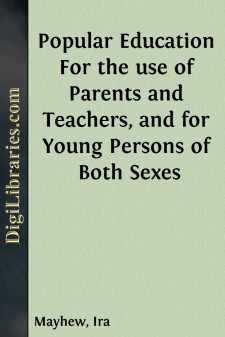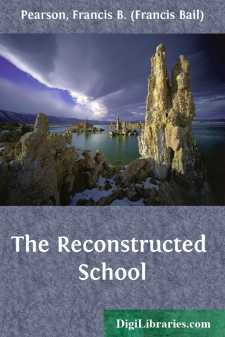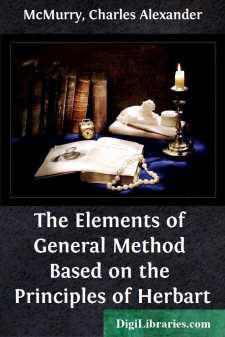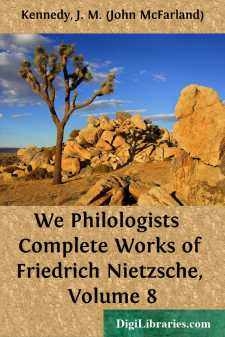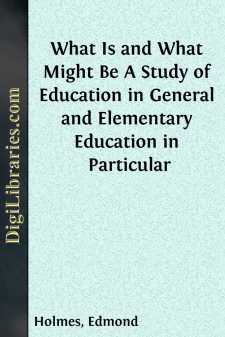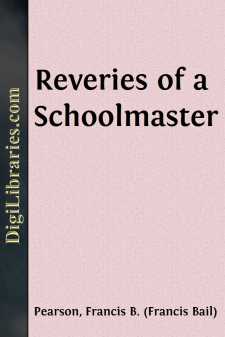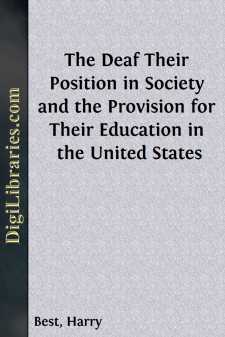Education
Education Books
Sort by:
Words and terms have, to different minds, various significations; and we often find definitions changing in the progress of events. Bailey says learning is "skill in languages or sciences." To this, Walker adds what he calls "literature," and "skill in anything, good or bad." Dr. Webster enlarges the meaning of the word still more, and says, "Learning is the knowledge of...
more...
by:
Ira Mayhew
Who is sufficient for these things? is a question which any one may well ask when sitting down to the preparation of a treatise on popular education. The author of this work would have shrunk from the undertaking, but from deference to the judgment of the honorable body that unanimously invited its preparation. He has also been encouraged not a little by many kind friends, one of whom, distinguished...
more...
A Preliminary Survey of the Task Before the School When people come to think alike, they tend to act alike; unison in thinking begets unison in action. It is often said that the man and wife who have spent years together have grown to resemble each other; but the resemblance is probably in actions rather than in looks; the fact is that they have had common goals of thinking throughout the many years...
more...
THE CHIEF AIM OF EDUCATION. What is the central purpose of education? If we include under this term all the things commonly assigned to it, its many phases as represented by the great variety of teachers and pupils, the many branches of knowledge and the various and even conflicting methods in bringing up children, it is difficult to find a definition sufficiently broad and definite to compass its...
more...
Do Readers Read? Those who are interested in the proper use of our libraries are asking continually, “What do readers read?” and the tables of class-percentages in the annual reports of those institutions show that librarians are at least making an attempt to satisfy these queries. But a question that is still more fundamental and quite as vital is: Do readers read at all? This is not a paradox,...
more...
I To what a great extent men are ruled by pure hazard, and how little reason itself enters into the question, is sufficiently shown by observing how few people have any real capacity for their professions and callings, and how many square pegs there are in round holes: happy and well chosen instances are quite exceptional, like happy marriages, and even these latter are not brought about by reason. A...
more...
by:
Edmond Holmes
PREFACE My aim, in writing this book, is to show that the externalism of the West, the prevalent tendency to pay undue regard to outward and visible "results" and to neglect what is inward and vital, is the source of most of the defects that vitiate Education in this country, and therefore that the only remedy for those defects is the drastic one of changing our standard of reality and our...
more...
CHAPTER I IN MEDIAS RES I am rather glad now that I took a little dip (one could scarce call it a baptism) into the Latin, and especially into Horace, for that good soul gave me the expression in medias res. That is a forceful expression, right to the heart of things, and applies equally well to the writing of a composition or the eating of a watermelon. Those who have crossed the Channel, from...
more...
by:
Henry Faudel
"As the twelve tribes had many interests in common, and, in some respects, formed but one political body, the magistrates of all the tribes met in general assemblies to consult for the good of the nation." Jahn's History of the Hebrew Commonwealth. Whoever regards the state of our community in this country, must come to the conclusion, that we have arrived at an important period, when we...
more...
by:
Harry Best
INTRODUCTION Society as a whole knows little of the deaf, or the so-called deaf and dumb. They do not form a large part of the population, and many people seldom come in contact with them. Their affliction to a great extent removes them from the usual avenues of intercourse with men and debars them from many of the social activities of life, all tending to make the deaf more or less a class apart in...
more...


